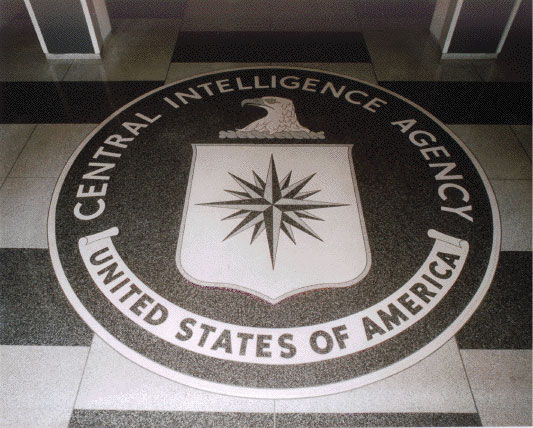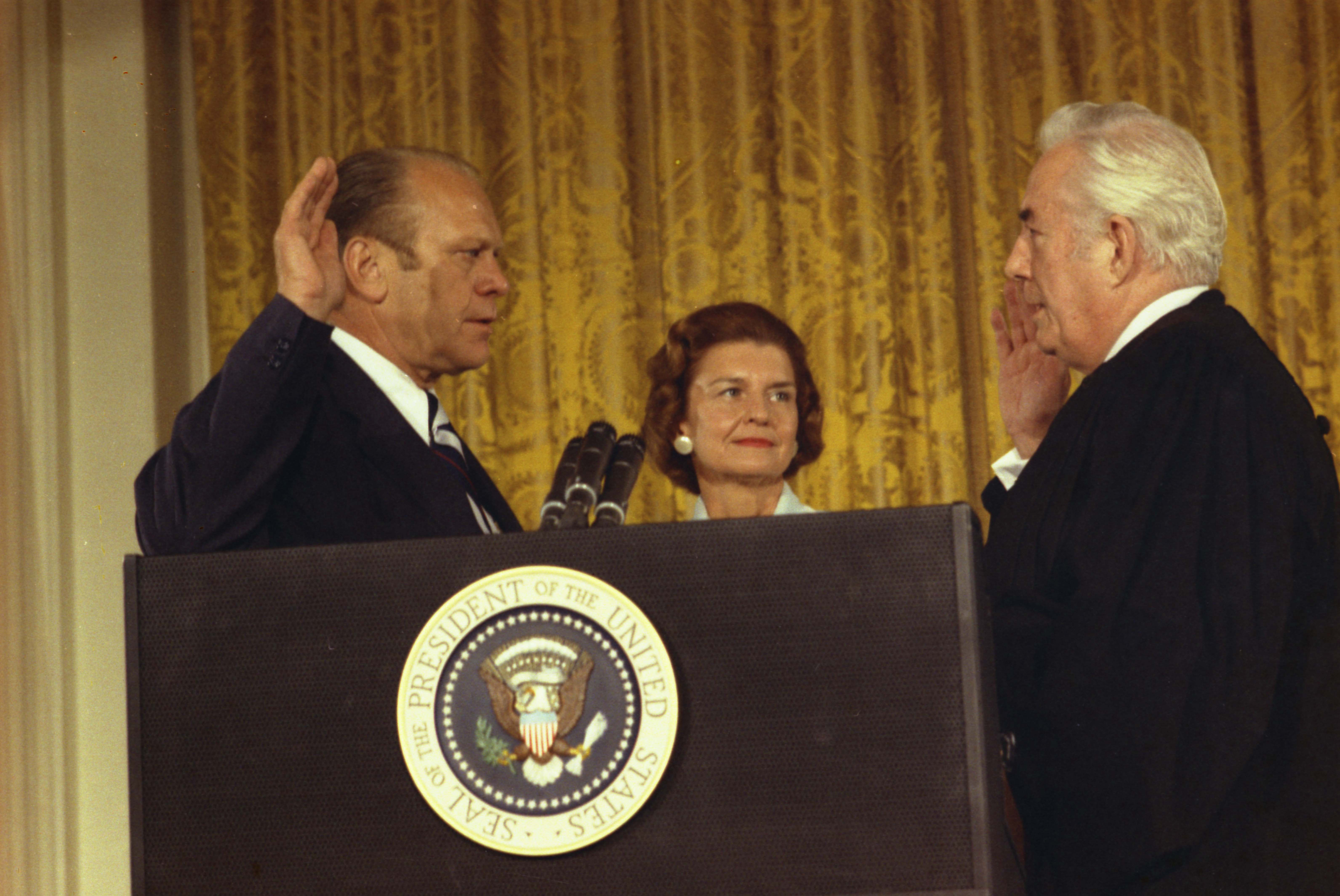|
Bill Colby
William Egan Colby (January 4, 1920 – May 6, 1996) was an American intelligence officer who served as Director of Central Intelligence (DCI) from September 1973 to January 1976. During World War II Colby served with the Office of Strategic Services. After the war he joined the newly created Central Intelligence Agency (CIA). Before and during the Vietnam War, Colby served as chief of station in Saigon, chief of the CIA's Far East Division, and head of the Civil Operations and Rural Development effort, as well as overseeing the Phoenix Program. After Vietnam, Colby became director of central intelligence and during his tenure, under intense pressure from the Congress and the media, adopted a policy of relative openness about U.S. intelligence activities to the Senate Church Committee and House Pike Committee. Colby served as DCI under President Richard Nixon and President Gerald Ford until January 30, 1976; he was succeeded at the CIA by George H. W. Bush. Early life ... [...More Info...] [...Related Items...] OR: [Wikipedia] [Google] [Baidu] |
Director Of Central Intelligence
The director of central intelligence (DCI) was the head of the American Central Intelligence Agency from 1946 to 2005, acting as the principal intelligence advisor to the president of the United States and the United States National Security Council, as well as the coordinator of intelligence activities among and between the various US intelligence agencies (collectively known as the United States Intelligence Community, Intelligence Community from 1981 onwards). The office existed from January 1946 to April 21, 2005. After the Intelligence Reform and Terrorism Prevention Act it was replaced by the Director of National Intelligence, director of national intelligence (DNI) as head of the Intelligence Community and the director of the Central Intelligence Agency (D/CIA) as head of the CIA. History The post of DCI was established by President of the United States, President Harry Truman on January 23, 1946, with Admiral Sidney Souers being the first DCI, followed by General Hoy ... [...More Info...] [...Related Items...] OR: [Wikipedia] [Google] [Baidu] |
Bachelor Of Arts
Bachelor of arts (BA or AB; from the Latin ', ', or ') is a bachelor's degree awarded for an undergraduate program in the arts, or, in some cases, other disciplines. A Bachelor of Arts degree course is generally completed in three or four years, depending on the country and institution. * Degree attainment typically takes four years in Afghanistan, Armenia, Azerbaijan, Bangladesh, Brazil, Brunei, China, Egypt, Ghana, Greece, Georgia, Hong Kong, Indonesia, Iran, Iraq, Ireland, Japan, Kazakhstan, Kenya, Kuwait, Latvia, Lebanon, Lithuania, Mexico, Malaysia, Mongolia, Myanmar, Nepal, Netherlands, Nigeria, Pakistan, the Philippines, Qatar, Russia, Saudi Arabia, Scotland, Serbia, South Korea, Spain, Sri Lanka, Taiwan, Thailand, Turkey, Ukraine, the United States and Zambia. * Degree attainment typically takes three years in Albania, Australia, Bosnia and Herzegovina, the Caribbean, Iceland, India, Israel, Italy, New Zealand, Norway, South Africa, Switzerland, the Canadian province of ... [...More Info...] [...Related Items...] OR: [Wikipedia] [Google] [Baidu] |
Presidency Of Gerald Ford
Gerald Ford's tenure as the 38th president of the United States began on August 9, 1974, upon the resignation of Richard Nixon from office, and ended on January 20, 1977, a period of days. Ford, a Republican from Michigan, had served as vice president since December 6, 1973, following Spiro Agnew's resignation from that office. Ford was the only person to serve as president without being elected to either the presidency or the vice presidency. His presidency ended following his defeat in the 1976 presidential election by Democrat Jimmy Carter. Ford took office in the aftermath of the Watergate scandal and in the final stages of the Vietnam War, both of which engendered a new disillusion in American political institutions. Ford's first major act upon taking office was to grant a presidential pardon to Nixon for his role in the Watergate scandal, prompting a major backlash to Ford's presidency. He also created a conditional clemency program for Vietnam War draft dodgers. Much ... [...More Info...] [...Related Items...] OR: [Wikipedia] [Google] [Baidu] |
Presidency Of Richard Nixon
Richard Nixon's tenure as the 37th president of the United States began with his first inauguration on January 20, 1969, and ended when he resigned on August 9, 1974, in the face of almost certain impeachment because of the Watergate Scandal and resigned, the only U.S. president ever to do so. He was succeeded by Gerald Ford, whom he had appointed vice president after Spiro Agnew became embroiled in a separate corruption scandal and was forced to resign. Nixon, a prominent member of the Republican Party from California who previously served as vice president under Dwight D. Eisenhower, took office following the 1968 presidential election, in which he defeated Hubert Humphrey, the then-incumbent vice president. Although he had built his reputation as a very active Republican campaigner, Nixon downplayed partisanship in his 1972 landslide reelection. Nixon's primary focus while in office was on foreign affairs. He focused on détente with the People's Republic of China and ... [...More Info...] [...Related Items...] OR: [Wikipedia] [Google] [Baidu] |
Pike Committee
The Pike Committee is the common name for the United States House Permanent Select Committee on Intelligence during the period when it was chaired by Democratic Representative Otis G. Pike of New York. Under Pike's chairmanship, the committee investigated illegal activities by the U.S. Central Intelligence Agency (CIA), the Federal Bureau of Investigation (FBI), and the National Security Agency (NSA). The Committee conducted much of its investigation, while the U.S. Senate Select Committee to Study Governmental Operations with Respect to Intelligence Activities, chaired by Senator Frank Church and informally known as the "Church Committee," conducted its own investigation. Unlike the report of the investigation of the Church Committee, which was eventually released to the public in the face of Executive Branch opposition to its release, the report of the investigation by the Pike Committee was suppressed from release to the American public, although portions of it were leaked and it ... [...More Info...] [...Related Items...] OR: [Wikipedia] [Google] [Baidu] |
Church Committee
The Church Committee (formally the United States Senate Select Committee to Study Governmental Operations with Respect to Intelligence Activities) was a US Senate select committee in 1975 that investigated abuses by the Central Intelligence Agency (CIA), National Security Agency (NSA), Federal Bureau of Investigation (FBI), and the Internal Revenue Service (IRS). Chaired by Idaho Senator Frank Church ( D- ID), the committee was part of a series of investigations into intelligence abuses in 1975, dubbed the "Year of Intelligence", including its House counterpart, the Pike Committee, and the presidential Rockefeller Commission. The committee's efforts led to the establishment of the permanent US Senate Select Committee on Intelligence. The most shocking revelations of the committee include Operation MKULTRA involving the drugging and torture of unwitting US citizens as part of human experimentation on mind control; COINTELPRO involving the surveillance and infiltration of ... [...More Info...] [...Related Items...] OR: [Wikipedia] [Google] [Baidu] |
Phoenix Program
The Phoenix Program ( vi, Chiến dịch Phụng Hoàng) was designed and initially coordinated by the United States Central Intelligence Agency (CIA) during the Vietnam War, involving the American, Australian, and South Vietnamese militaries. In 1969, CIA responsibility was phased out, and the program was put under the authority of the Civil Operations and Revolutionary Development Support (CORDS).Lewy, Guenter (1978), ''America in Vietnam'', New York: Oxford University Press, pp. 280-281 The program, which lasted from 1967 to 1972, was designed to identify and destroy the Viet Cong (VC) via infiltration, torture, capture, counter-terrorism, interrogation, and assassination. The CIA described it as "a set of programs that sought to attack and destroy the political infrastructure of the Viet Cong." The Phoenix Program was premised on the idea that North Vietnamese infiltration had required local support within noncombat civilian populations, which were referred to as the "VC i ... [...More Info...] [...Related Items...] OR: [Wikipedia] [Google] [Baidu] |
Civil Operations And Revolutionary Development Support
CORDS (Civil Operations and Revolutionary Development Support) was a pacification program of the governments of South Vietnam and the United States during the Vietnam War. The program was created on 9 May 1967, and included military and civilian components of both governments. The objective of CORDS was to gain support for the government of South Vietnam from its rural population which was largely under the influence or controlled by the insurgent communist forces of the Viet Cong (VC) and the North Vietnamese People's Army of Vietnam (PAVN). Unlike earlier pacification programs in Vietnam, CORDS is seen by many authorities as a "successful integration of civilian and military efforts" to combat the insurgency. By 1970, 93 percent of the rural population of South Vietnam was believed by the United States to be living in "relatively secure" villages. CORDS had been extended to all 44 provinces of South Vietnam, and the communist insurgency was much reduced. Critics, however, have de ... [...More Info...] [...Related Items...] OR: [Wikipedia] [Google] [Baidu] |
Vietnam War
The Vietnam War (also known by #Names, other names) was a conflict in Vietnam, Laos, and Cambodia from 1 November 1955 to the fall of Saigon on 30 April 1975. It was the second of the Indochina Wars and was officially fought between North Vietnam and South Vietnam. The north was supported by the Soviet Union, China, and other communist states, while the south was United States in the Vietnam War, supported by the United States and other anti-communism, anti-communist Free World Military Forces, allies. The war is widely considered to be a Cold War-era proxy war. It lasted almost 20 years, with direct U.S. involvement ending in 1973. The conflict also spilled over into neighboring states, exacerbating the Laotian Civil War and the Cambodian Civil War, which ended with all three countries becoming communist states by 1975. After the French 1954 Geneva Conference, military withdrawal from Indochina in 1954 – following their defeat in the First Indochina War – the Viet Minh to ... [...More Info...] [...Related Items...] OR: [Wikipedia] [Google] [Baidu] |
Central Intelligence Agency
The Central Intelligence Agency (CIA ), known informally as the Agency and historically as the Company, is a civilian foreign intelligence service of the federal government of the United States, officially tasked with gathering, processing, and analyzing national security information from around the world, primarily through the use of human intelligence (HUMINT) and performing covert actions. As a principal member of the United States Intelligence Community (IC), the CIA reports to the Director of National Intelligence and is primarily focused on providing intelligence for the President and Cabinet of the United States. President Harry S. Truman had created the Central Intelligence Group under the direction of a Director of Central Intelligence by presidential directive on January 22, 1946, and this group was transformed into the Central Intelligence Agency by implementation of the National Security Act of 1947. Unlike the Federal Bureau of Investigation (FBI), which is a ... [...More Info...] [...Related Items...] OR: [Wikipedia] [Google] [Baidu] |
Intelligence
Intelligence has been defined in many ways: the capacity for abstraction, logic, understanding, self-awareness, learning, emotional knowledge, reasoning, planning, creativity, critical thinking, and problem-solving. More generally, it can be described as the ability to perceive or infer information, and to retain it as knowledge to be applied towards adaptive behaviors within an environment or context. Intelligence is most often studied in humans but has also been observed in both non-human animals and in plants despite controversy as to whether some of these forms of life exhibit intelligence. Intelligence in computers or other machines is called artificial intelligence. Etymology The word ''intelligence'' derives from the Latin nouns '' intelligentia'' or '' intellēctus'', which in turn stem from the verb '' intelligere'', to comprehend or perceive. In the Middle Ages, the word ''intellectus'' became the scholarly technical term for understanding, and a translation f ... [...More Info...] [...Related Items...] OR: [Wikipedia] [Google] [Baidu] |
Office Of Strategic Services
The Office of Strategic Services (OSS) was the intelligence agency of the United States during World War II. The OSS was formed as an agency of the Joint Chiefs of Staff (JCS) to coordinate espionage activities behind enemy lines for all branches of the United States Armed Forces. Other OSS functions included the use of propaganda, subversion, and post-war planning. The OSS was dissolved a month after the end of the war. Intelligence tasks were shortly later resumed and carried over by its successors the Department of State's Bureau of Intelligence and Research (INR), and the independent Central Intelligence Agency (CIA). On December 14, 2016, the organization was collectively honored with a Congressional Gold Medal. Origin Prior to the formation of the OSS, the various departments of the executive branch, including the State, Treasury, Navy, and War Departments conducted American intelligence activities on an ''ad hoc'' basis, with no overall direction, coordination, or ... [...More Info...] [...Related Items...] OR: [Wikipedia] [Google] [Baidu] |



.png)




